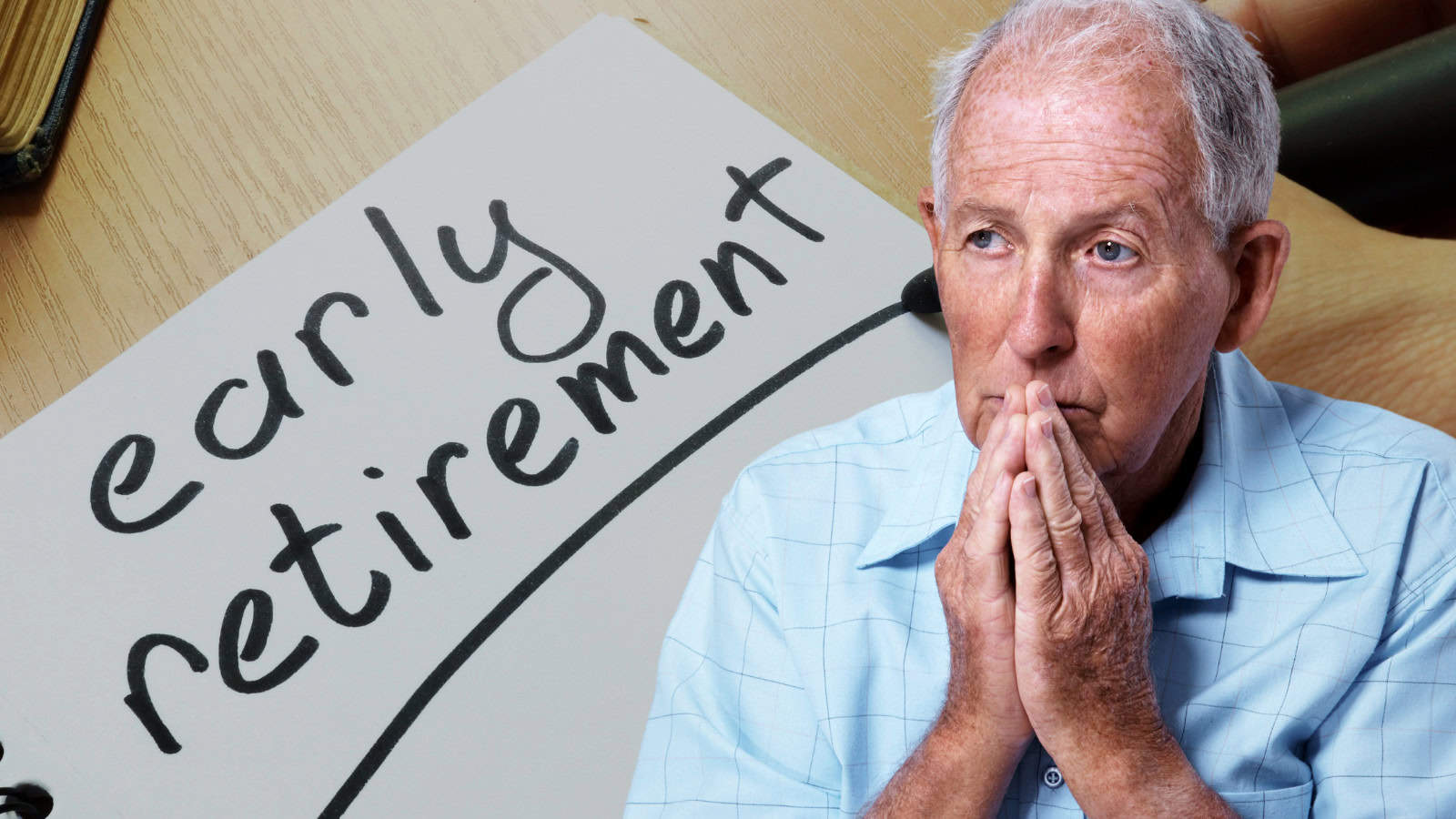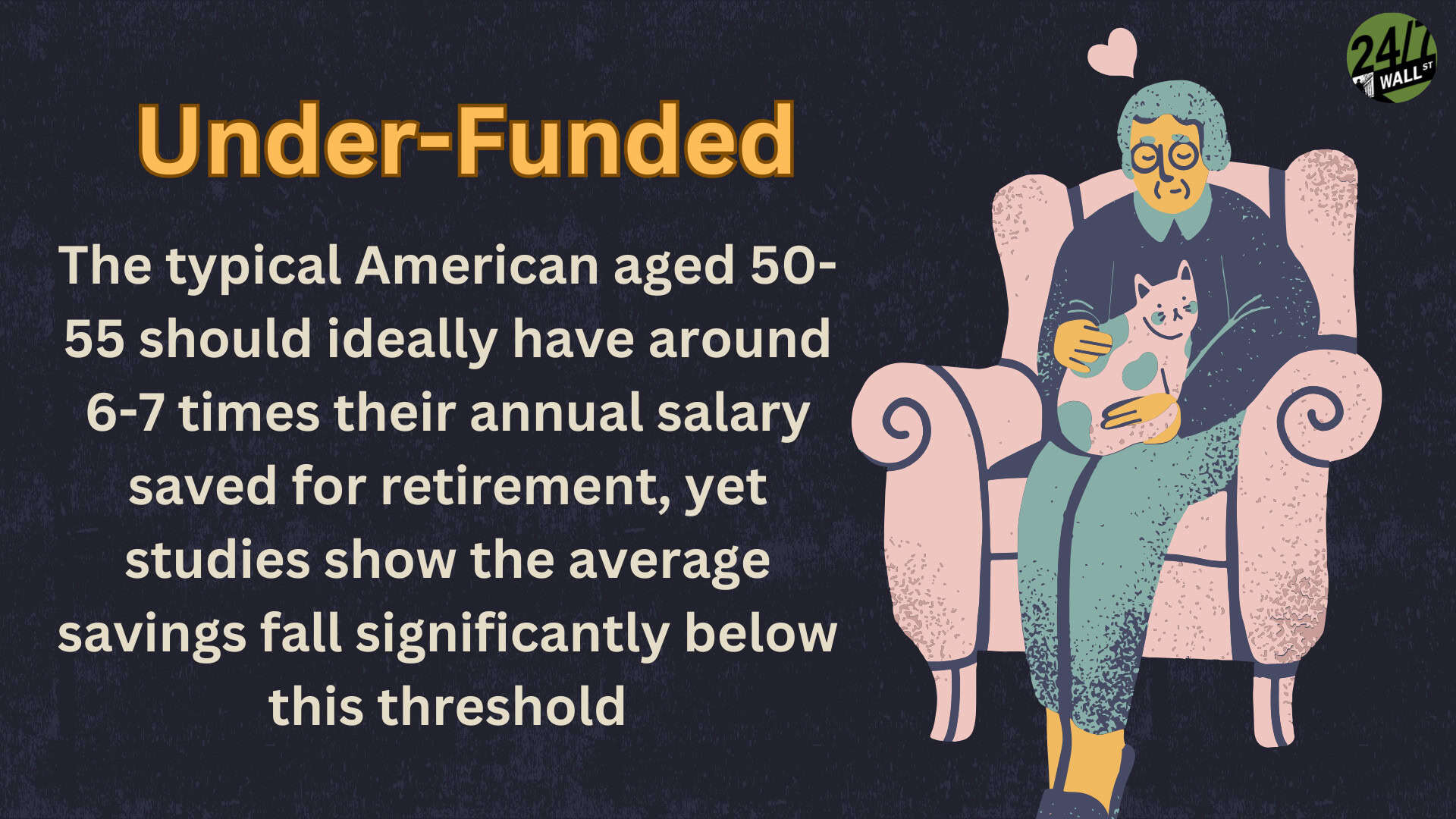
This post may contain links from our sponsors and affiliates, and Flywheel Publishing may receive
compensation for actions taken through them.
compensation for actions taken through them.
The Transamerica Center for Retirement Studies released its 24th Annual Transamerica Retirement Survey in November. Of the 10 key findings, the most surprising was the median age for retirement.
Of the 2,400 retirees surveyed by Harris Poll for Transamerica who do not work, half of the group retired before 62, a shockingly high number.
“Many people may not even realize how severe the consequences can be and how absolutely critical those extra five or 10 years in the workforce can be in terms of achieving retirement security,” Transamerica Institute and Transamerica Center for Retirement Studies CEO Catherine Collinson told CNBC in late November.
Transamerica’s report is a must-read for anyone considering early retirement in the next 5-10 years. There are so many reasons you would be making a huge mistake.
Here are five of the biggest.
Key Points About This Article:
- There is a big disconnect between what people save for retirement and what they need.
- Social Security is the most significant income provider for many retirees, and it defies logic as to why people would willingly stop working at 62 if they didn’t have to.
- Paying off your mortgage before retirement is a wise move.
- Also: Are You On Track to Retire? Take This Quiz and Find Out (Sponsored)
Retirees Don’t Save Enough

Despite all the information available online about retiring well, 76% of the retirees surveyed wished they had saved more. Retiring before 65 certainly adds to the shortfall.
This year’s report found that only 21% retired because they were financially fit and prepared to cover all expenses for a long and active retirement. While 46% retired for health reasons, that leaves 54% who did so without healthcare concerns slowing them down.
“Many retirees may wonder what they could have done differently to save and plan for retirement, and many may feel they have done everything right but still came up short,” said Collinson. “In reality, over their working careers, the world has changed, the retirement landscape has evolved, and the need to self-fund a greater portion of one’s retirement income has intensified.”
Relying on Home Equity

The report found that the median household savings of retirees surveyed was $71,000, excluding home equity. Further, only 9% of retirees had savings over $500,000, with 43% having less than $100,000, including 14% having none.
That’s amazing when you consider that the estimated median home equity among retirees was $114,000, with 24% having zero home equity. That last figure makes sense, given that the survey found that 27% of retirees rent or live with relatives or friends.
However, despite a median savings of just $71,000, retirees believe combining these savings, home equity, and Social Security will be enough to cover their retirement expenses.
However, for those that opt to start receiving Social Security benefits at 62, the earliest you can claim them, your benefit is permanently reduced based on the number of months you received them before your full retirement age, which is between 66 and 67, depending on your year of birth.
So, if you’re in perfectly good health, it makes sense to work until you reach your full retirement age. This will provide you with 5-6 more years of savings from your work.
Believing You’ll Have Enough

With Transamerica’s survey findings, the adage, “Do as I say, not as I do,” comes to mind.
While the previous section highlighted the fact that most retirees don’t save enough for their post-working lifestyle and wish they had saved more, a whopping 70% of retirees are either “very confident” or “somewhat confident” that they’ll maintain a comfortable lifestyle in retirement.
Further, despite a general lack of household wealth (savings, home equity, Social Security) at retirement, 68% believed their current expenses were either as expected or less than expected. In comparison, only 32% said they were more than expected.
This suggests that most retirees lived within their means before retirement. However, it doesn’t answer whether their pre-retirement lives were lived to the fullest or merely scrimping and saving to get by.
Lastly, and this could be wishful thinking, 50% of retirees feel they have built a large enough retirement nest egg. Transamerica’s data says otherwise.
Working Keeps You Young
The interesting thing about Transamerica’s findings is that despite all the data showing that people don’t save enough for retirement, only 9% of retirees retire at 70 or later, and another 8% don’t think they’ll ever stop working despite considering themselves fully retired.
Amazingly, while there is all kinds of advice for seniors staying active in retirement, 30% of the survey’s retirees retired at 59 or younger, hardly old by today’s standards.
Financial professionals mention many reasons why people keep working into their 70s. A financial shortfall is one of them. However, others do so for the social aspect; they love what they do (Warren Buffett is a prime example), and working keeps them healthy and energetic.
According to the U.S. Bureau of Labor Statistics, the median age of the labor force in this country is 41.6, expected to rise to 42.4 by 2033.
Hanging around people younger than yourself is always a good way to stay young. Depending on your work situation, continuing to work into your 70s ensures this will be the case.
Relying Too Heavily on Social Security

Transamerica’s survey details all the expected sources of retirement income. Top on the list is Social Security. Approximately 91% expect to receive these benefits in retirement, which makes sense given that most working adults paid into it.
However, 58% of retirees believe it will be their primary source of income in retirement, 1.5 times more than personal savings and company-funded pension plans combined. Surprisingly, less than 1% expected home equity to be a source of retirement income. Yet, the median home equity among retirees was $114,000 or 62% of total household savings.
The median age at which retirees started receiving Social Security benefits is 63, one year later than the earliest you can receive them. I’m not a math genius, but this suggests half the retirees started taking them at 62 despite a 20-30% reduced benefit for electing to do so. Just 4% waited until 70, the latest you can start receiving them, providing increased benefits.
Given the median number of years the average retiree expects to spend in retirement is 29, and the median retirement age is 62, it seems like a huge mistake to retire before you’re 65 or 70 if you plan to rely on Social Security as your primary source of income.
Take Charge of Your Retirement In Just A Few Minutes (Sponsor)
Retirement planning doesn’t have to feel overwhelming. The key is finding expert guidance—and SmartAsset’s simple quiz makes it easier than ever for you to connect with a vetted financial advisor.
Here’s how it works:
- Answer a Few Simple Questions. Tell us a bit about your goals and preferences—it only takes a few minutes!
- Get Matched with Vetted Advisors Our smart tool matches you with up to three pre-screened, vetted advisors who serve your area and are held to a fiduciary standard to act in your best interests. Click here to begin
- Choose Your Fit Review their profiles, schedule an introductory call (or meet in person), and select the advisor who feel is right for you.
Why wait? Start building the retirement you’ve always dreamed of. Click here to get started today!
Thank you for reading! Have some feedback for us?
Contact the 24/7 Wall St. editorial team.




